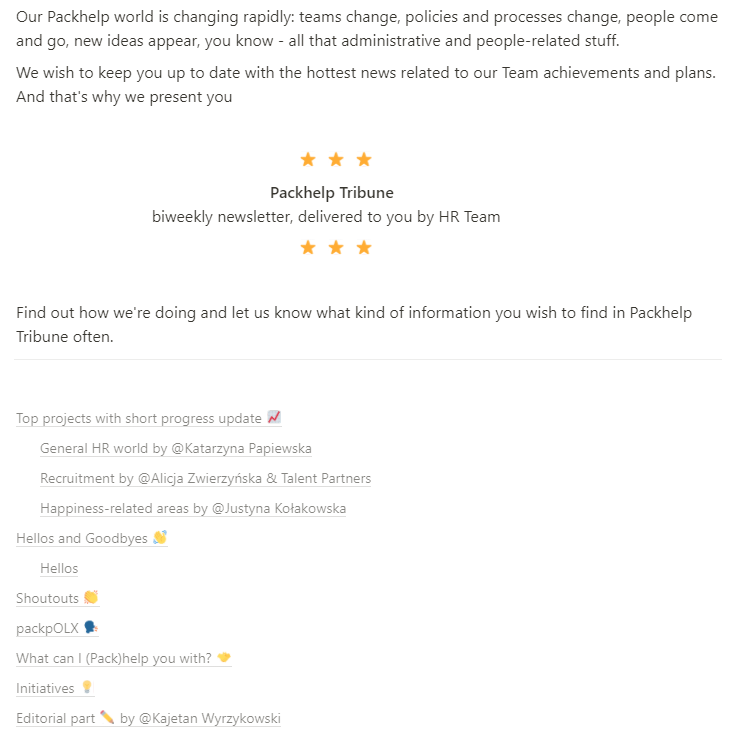In March 2021, Mental Health America (MHA) published a report that found 83% of 5,000 surveyed employees felt emotionally drained from their work. The same report also said that 59% feel their supervisor doesn’t do enough to help them manage their mental stress.
Consider that for a moment.
Over 8 in 10 employees feel burned out from work. Almost 2 in 3 feel they don’t get enough support from their employer.
The impact of the COVID crisis is at the core of these statistics. Many companies had remote work forced on them and struggled to be productive, let alone profitable. Even some of the most inclusive companies with forward-thinking cultures may have sacrificed employee happiness.
But that was over a year ago. Many of us have now settled into remote work for what may be an indefinite amount of time. Other companies may be using both office and remote work.
Regardless of how your company leverages remote work, it’s essential to support your remote workers with more than just branded office supplies and treating remote work itself as a benefit. Keeping your employees mentally healthy will see them stay happy, productive, and making money for your business.
Here are several tips for you to ensure your remote workforce stays happy, backed by the insights of remote team managers.
Communication
It’s not until you move to full-time remote work that you realize just how much you used to converse with people in passing. Whether it was about the game on the weekend, office gossip, or even work-related chat, a lot of it happened face-to-face and usually just as you passed someone while moving around the office.
Remote work kills that water cooler chat entirely. Keeping people informed about company-wide activities, initiatives, successes, and failures has also become harder.
“Don’t leave space for making assumptions; instead: overcommunicate, overcommunicate, O V E R C O M M U N I C A T E !” explains Justyna Kowalska, Happiness manager at Packhelp. “To embrace transparency and trust, we’ve started running Pack-talks—weekly meetings hosted by Wojtek (our CEO), during which any Packhelp employee can openly ask questions.”
“Also, we launched Packhelp Tribune—a biweekly newsletter delivered by the HR team, where we document important news and announcements.”

Remote communication looks different from in-person collaboration, but it’s not necessarily more complex. It simply requires innovation.
MAIN TAKEAWAY: Poor communication causes stress, and leads to anxiety, so err on the side of overcommunicating to combat this. Too much irrelevant information will do no harm to your employees. Not enough information will have a negative impact.
External Support
Gone are the days of “fresh fruit in the office“ being a perk. To recruit and retain quality talent, be prepared to offer access to external mental health facilities and professionals.
“While the company can support employees with initiatives like extra leave, WFH budgets and virtual socials, sometimes you just need to talk to someone other than your employees,” says Thomas Forstner, People and Talent Lead at Juro. “We implemented a Slack-native therapy platform called Spill to make sure our team could get the help they needed during this difficult time.”

MAIN TAKEAWAY: Remote work can inadvertently force employees to bottle up emotions and dwell on problems. Support your staff by giving them access to external resources for them to lean on.
Another way to look at it is to create a safe environment for your employees to voice their frustrations without being judged. This may be with an external therapist or with technology like in the above example. Plus, managers and supervisors may also be promising avenues for employees to vent, but they mustn’t be the only avenues given to remote employees.
Fitness
Fitness is vital to mental health.
A study done by the Harvard T.H. Chan School of Public Health found that running for 15 minutes a day or having a walk for an hour reduces the risk of major depression by 26%.

That 15-minute walk may have been the walk home for many of your employees. In fact, going to the gym on the way home from work was a regular activity for many of us.
Now with no need to go to the office, gym-goers may be less motivated to go to the gym and less likely to workout altogether. Simply put, your perk of ‘"discounted gym memberships" means a lot less now than it did 12 months ago.
It’s situations like these where innovative HR teams can truly thrive and bring company-wide benefits to all employees.
John Adam, Head of Marketing at K&C, a nearshore IT outsourcing provider, explains, “We work with a relatively well-known e-commerce company that sells a system for skipping rope fitness, and they kindly sent a few sets to each of our offices that then found their way into various home offices. 5 colleagues and I now have a remote monthly skipping face-off that provides 20 mins of entertainment for everyone.”
This simple initiative fostered fitness amongst half a dozen employees and created a sense of engaged community that’s more than just work.

“All 6 of us are now pretty mean skippers with a great incentive to do some regular exercise within the confines of our home offices. I won’t mention that it may also prove a pathway into gambling problems for some of the more enthusiastic "fans"’ across the team!”
MAIN TAKEAWAY: Find the fitness freaks in your company and nurture them. Their passion for fitness can be used to benefit your entire team. Whether that’s some type of group challenge like the above example or an online group workout at lunchtime, they’re a great resource to leverage. You can go even further and create your own fitness merch to encourage more people to take part in your activities. Moreover, you can suggest using a digital wellness platform, such as FormHealth, to empower your employees to take charge of their fitness goals.
Sharing Life Skills
When you hear the phrase "life skills", there’s every chance you think about being able to do your laundry, cook a basic meal, or have a conversation. While that’s true, life skills are also skills that we use subconsciously to plan our day, resolve conflicts, or come to compromises.
Creating an environment for your employees to share even the most basic skills can help ensure that no one is left behind—it may even pave the way for people to share more personal skills and strategies. The need for such an environment is only exacerbated if you have a multicultural team from or located in different parts of the world. For example, a burned out lawyer might benefit from learning stress management techniques with the team during a Wellbeing Wednesday workshop.

Crispina Wilson-Jones, People Operations Executive at Learnerbly explains how her team created the concept of "Wellbeing Wednesdays":
“Wellbeing Wednesdays are mental health and wellbeing workshops for our people. For example, one of our developers recently hosted a breathwork session, which we all found very helpful!”
MAIN TAKEAWAY: While remote work may take your co-workers away from you physically, the pressures and frustrations that may be associated with work are still prevalent. Coping skills and life skills need to evolve accordingly. Every employee’s personal tool kit to deal with difficult people has to change, as does the toolkit for managers and supervisors to diffuse conflicts in a remote world.
Group Downtime
All work and no play makes Jack a dull boy.
Making all remote conversations solely about work gets, well, boring sometimes. There’s no need to allocate specific times to "bond" or "get to know each other", but occasionally having a bit of fun is obviously a good thing.
“Since the beginning of the lockdown, our professional lives have been affected,” explains Virginia Zacharaki from Moosend. “However, being part of a team that constantly promotes team spirit and bonding activities through video conferencing and fun Slack groups will always put a smile upon my face. My personal favourite channel is the one dedicated to our pets’.”

If your company has employees that speak English as a second language, there are other ways you can help them, too. “We’re a Polish company with many in-house Polish developers. Their English skills are fantastic, but they always want to improve their skills,” says Just Lestal, content writer at Devskiller.

“We’ve created a dedicated Slack channel where anyone can ask our in-house English writers any questions they have about English. The one rule is that it's not used for proofreading. Every week, one of the English writers will share a new tip. The sales team has loved it'.”
MAIN TAKEAWAY: Many people want to share their skills and simply help where they can. Find these people and put them to work.
It's Not All About Perks
Perks are great, but they don't always solve the mental health problems of teams.
“The real way to elevate everyone's workplace experience and promote wellbeing, wherever they work from, is to build a more connected team,” says John Goulding, CEO of Workvivo. “That means companies need to look beyond perks and rhetoric as band-aids to boost happiness. What employees seek most is a sense of connection and belonging. This need is core to peoples' human instincts—people want to feel that their work has value and purpose beyond their paychecks."
So just how do you create a sense of belonging in a company?
Many startup entrepreneurs live by the phrase "you don't hire good talent, and then tell them what to do". In essence, this means that if you've hired the right person for the job, they'll find what needs to be done and do it, ultimately giving them that sense of accomplishment and belonging.
MAIN TAKEAWAY: "Perks" can come in many shapes and forms. Managers who encourage, if not force their staff to sign out of inboxes and chat tools at the end of the day have a massive benefit on employees' mental health.
Encourage staff to build a schedule and stick to it. When staff are at work, they're at work and available—when they're not, they're not.
"Sell” These Tips to Your Staff Correctly
You may have seen some employees baulk at the idea of “another” workshop or the concept of mental wellness.
They may already have existing foundations to deal with their own problems or simply want to get the job done. Therefore, if you're to implement the ideas of wellbeing workshops, access to mental health, or other remote perks, ensure that you explain the right benefits to your employees.
Summary
Mental health and wellbeing aren’t a "company perk" that we ever thought we'd need to have in this day and age. But the pandemic changed many things and will continue to shape the way we live and work. It will also bring more attention to what's essential in both our personal and professional lives.
Keeping remote staff happy and healthy can be as simple as looking at what your staff is passionate about in their spare time and asking them to use those passions to help their entire team.
Author's bio:
Phil Forbes is a bearded Australian living in Warsaw, Poland. When he’s not taking Packhelp’s boxes to the world, he can be found trying not to kill his plants, hanging out with his dog freelancing for Joseph & Conrad.





